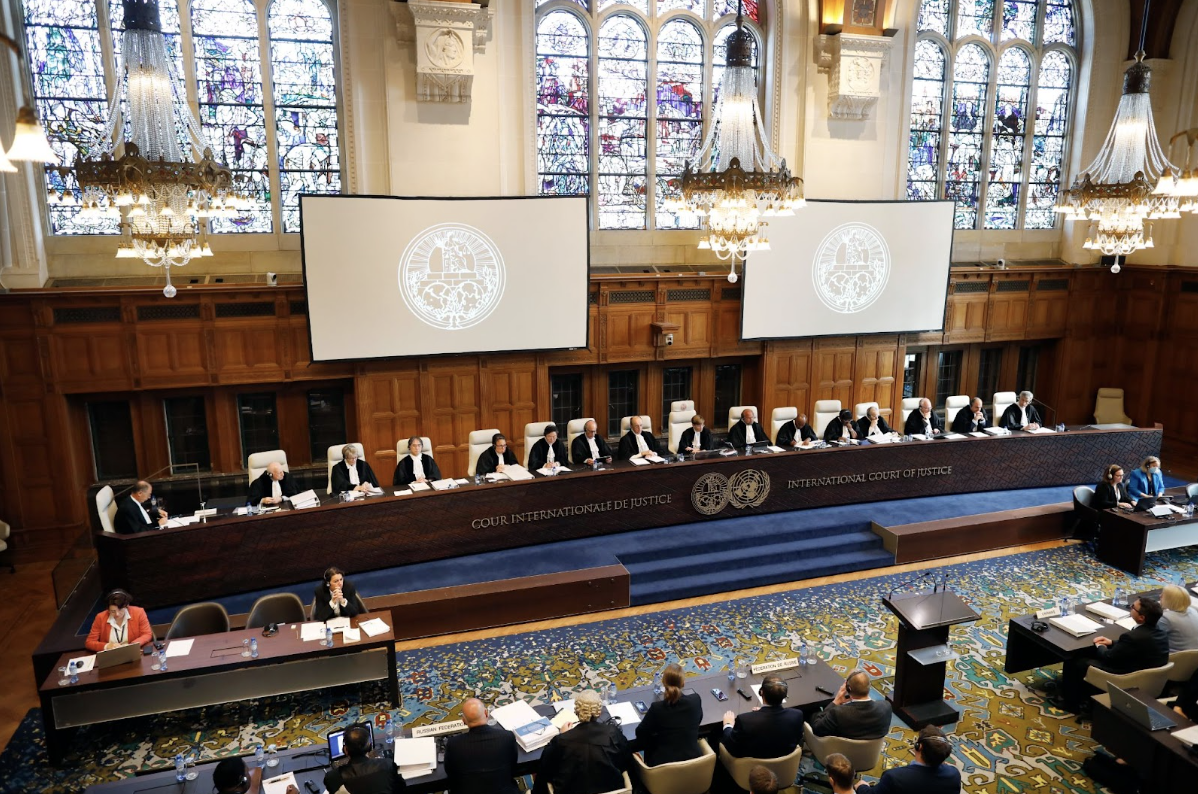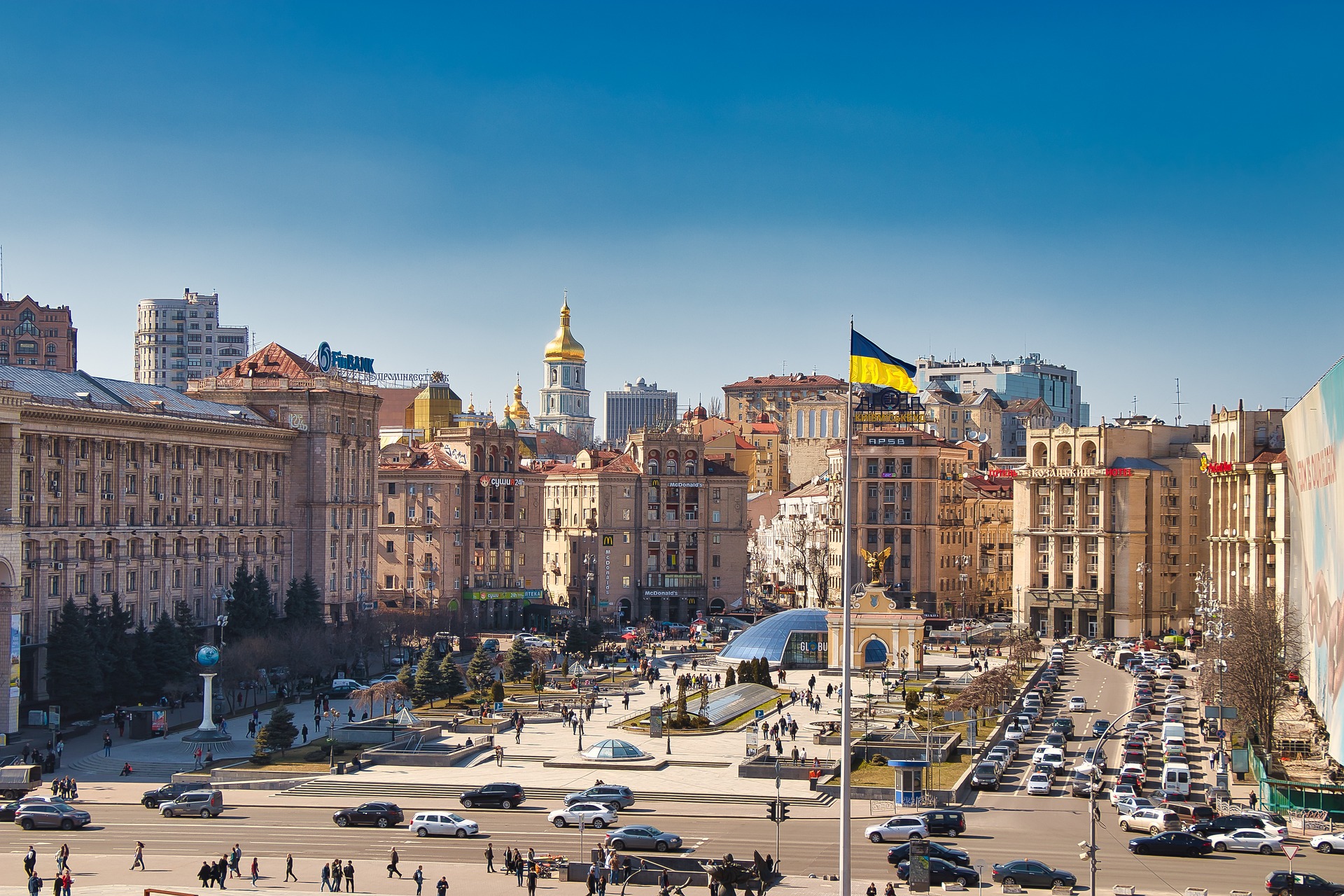The ICJ Verdict on Ukraine v. Russian Federation: A Nuanced Ruling on Terrorism Financing and Racial Discrimination

On 31 January 2024, Judge Donoghue of the International Court of Justice (ICJ) deliberated on Ukraine's case against Russia at the Peace Palace in The Hague. The hearings focused on violations of the International Convention for the Suppression of the Financing of Terrorism (ICSFT) and the International Convention on the Elimination of All Forms of Racial Discrimination (CERD). The court is set to address allegations of genocide under the Convention on the Prevention and Punishment of the Crime of Genocide on February 2, 2024.
Background
On 26 April, 2016, Crimea's supreme court labelled the highest governing body of Crimean Tatars "extremist," as part of broader efforts to regulate the ethnic minority on the annexed peninsula. Many Crimean Tatars opposed Russia's annexation of Crimea in 2014, leading to reported discrimination. Regional Prosecutor General Natalia Poklonskaya justified the ban on the Tatars' assembly, Mejlis, alleging destabilisation, aggression promotion, and ethnic nationalism. This decision followed actions like suppressing a Tatar-language TV station and reports of police intimidation. Council of Europe Commissioner Nils Muiznieks urged reconsideration, citing concerns about potential stigmatisation. Crimean Tatar leader Refat Chubarov condemned the decision, viewing it as unjustifiable and part of broader attempts to manage dissent in Crimea.
Further, on 17 July 2014, Malaysia Airlines flight MH17 vanished over conflict-hit Ukraine, en route from Amsterdam to Kuala Lumpur. The Dutch Safety Board investigation revealed that the plane was hit by a Russian-made Buk missile over eastern Ukraine, leading to the death of 283 passengers and 15 crew members. Whilst Russia denied any role in the happenings, evidence suggested Russian-backed separatists fired the missile from Russian territory.
Consequently, in 2017, Ukraine filed a case alleging terrorism financing and racial discrimination violations by Russia.
The ICJ acknowledged jurisdiction based on disputes over Russia's failure to prevent terrorism financing and discrimination against Crimean Tatars and Ukrainians. The Court affirmed prima facie jurisdiction, ordering provisional measures for CERD violations, instructing Russia to refrain from limiting Crimean Tatar institutions and ensuring Ukrainian language education in Crimea. Judge Cançado Trindade advocated a proactive human rights approach.
Allegations of Terrorism Financing and Discrimination
Yesterday, the ruling addressed Ukraine's terrorism financing claims, dismissing most but acknowledging Russia's failure to investigate Kyiv's allegations against Donetsk and Luhansk representatives. The court found Russia in violation of CERD, emphasising the decline in Ukrainian language education in Crimea. Most claims related to racial discrimination against Crimean Tatars and Ukrainians were rejected due to insufficient evidence. However, the court noted Russia's failure to protect ethnic Ukrainians in Crimea, particularly regarding language education.
The persecution of the banned Mejlis of the Crimean Tatar People was seen as political, not ethnic. The court ruled the ban wasn't a CERD violation, highlighting Ukraine's failure to prove rights violations solely based on nationality. Despite findings, the ICJ refused compensation on both terrorism financing and racial discrimination claims. The lawsuit accused Moscow of supporting armed groups pre-invasion, mandating Russia to ensure Crimean Tatars' rights, permit Mejlis activities, and facilitate Ukrainian language education.
Geneva International Centre for Justice (GICJ) acknowledges the court's recognition of violations but criticised the denial of compensation to Ukraine, asserting that it may undermine accountability for future breaches of international law. GICJ calls for a comprehensive reevaluation of the evidence presented and urges the international community to remain vigilant in holding states accountable for their actions. GICJ emphasised the significance of international institutions in addressing issues of terrorism financing and racial discrimination, urging a continued commitment to human rights principles in the pursuit of justice.
|
HRC54: Escalating Crisis in Ukraine |
HRC54: GICJ, Meezaan and Ma'onah Condemn Occupations in Ukraine, Palestine, and Iraq |
On the anniversary of the invasion of Ukraine |







